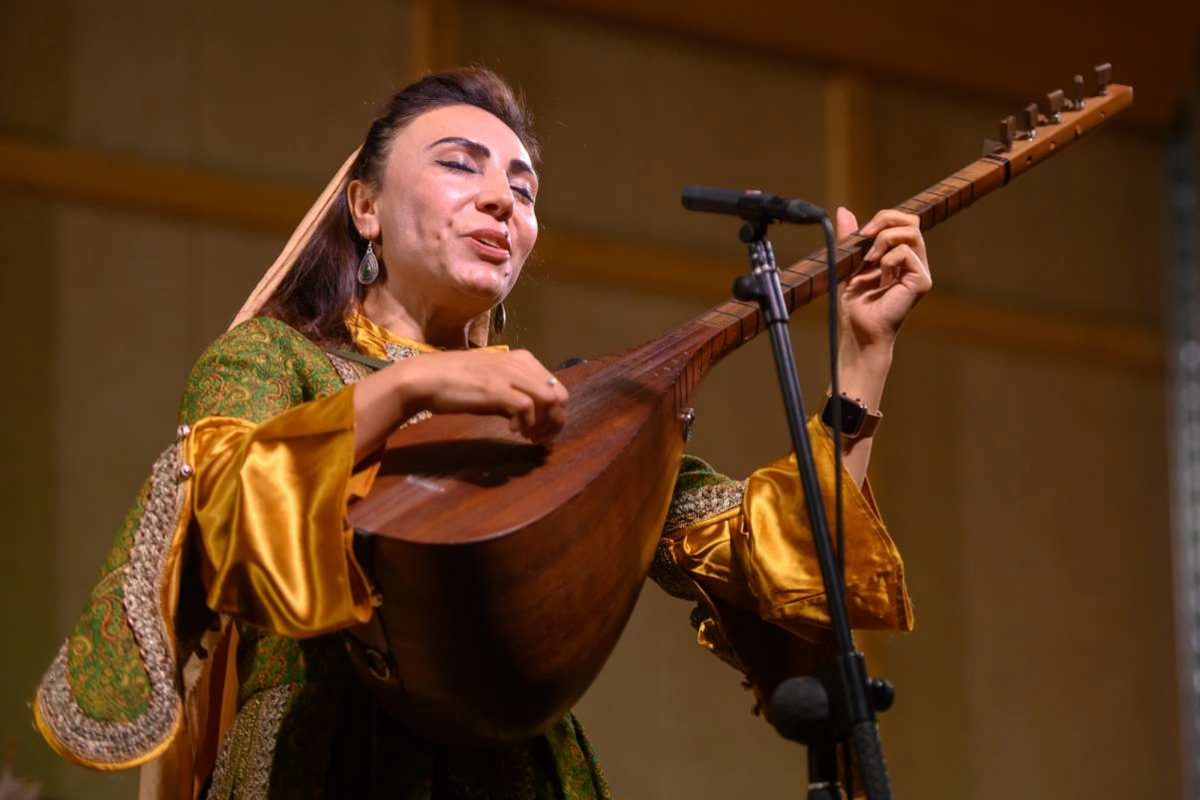
Europalia 2023 showcases Georgia's cultural richness, uniting tradition and modernity. With diverse exhibitions, performances, and collaborations, the festival fosters diplomatic ties. Notably, it highlights the Ashiq tradition, promoting inclusivity and strengthening Georgia's path towards EU candidacy.
Ashiq Nargile performs in Tbilisi just before her performance at Europalia in Belgium @ Onnik James Krikorian 2023
This year’s Europalia, a multidisciplinary international arts and cultural biennial established in Belgium in 1969, has become a showcase for intercultural dialogue on the European continent. For four months, from October to January, the event is intended to feature the best of traditional and contemporary art, crafts, dance, literature, music, and theatre from a specific country chosen every two years.
At first intended to showcase solely European culture, in 1989, it selected Japan as the thematic country that year. China, Brazil, India, and Türkiye followed for festivals between 2009 to 2017, and this year was the turn of Georgia. Decided before the 8 November recommendation to grant the country European Union membership candidate status, the timing is appropriate even if coincidental.
The festival will allow audiences the possibility to immerse themselves in Georgia's rich and diverse cultural heritage. It will feature exhibitions such as The Avant-Garde in Georgia 1900-1936 and personal exhibitions by modern Georgian artists, multidisciplinary performances, traditional and modern electronic music, theatrical performances, literary meetings, and a retrospective on Georgian cinema.
Collaborative projects between Georgian and European artists will add another layer of cultural exchange. Moreover, in a welcome move, it will also include ethnic minority participation as part of that tapestry, something that has otherwise been rare. On 10 November, for example, Nargile Mehtiyeva performed in Bruges, representing the Ashiq tradition of Georgia’s ethnic Azerbaijani community.
“The event garnered attention not only for its musical excellence but also for its significance in fostering cultural diplomacy,” The Georgian Ministry of Culture wrote on its Facebook page. Representatives from the Georgian Embassy in Belgium and the Georgian Ministry of Culture attended, “highlighting the importance of such cultural exchanges in strengthening diplomatic ties between nations.”
The ethnic Armenian and Azerbaijani communities are Georgia’s largest minorities in the country, but inclusion in local and international events has been rare or even non-existent. That could be changing, however. In mid-October, the State Folklore Center of Georgia also staged an entire evening in Tbilisi dedicated to the Ashiq and Mugham traditions supported by the Georgian government.
Organizing that event was Folklife Georgia, a non-governmental organization run by ethnic Georgians as part of a wider project, “Ashiq Traditions and Folklore Life of Azerbaijanis in Georgia.” The aim is to “foster a deeper understanding of the culture and traditions of the Azerbaijani-language community of Georgia,” and Ashiq Nargile also performed along with other performers.
“This Georgian-Azerbaijani traditional music evening holds particular significance as this musical tradition remains largely unfamiliar to a broader audience,” Folklife Georgia wrote on its Facebook page. Certainly, assuming that it receives its candidate status next month, minority inclusion will be an important requirement for Georgia’s possible long path toward eventual EU membership.
Share on social media